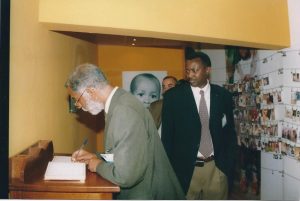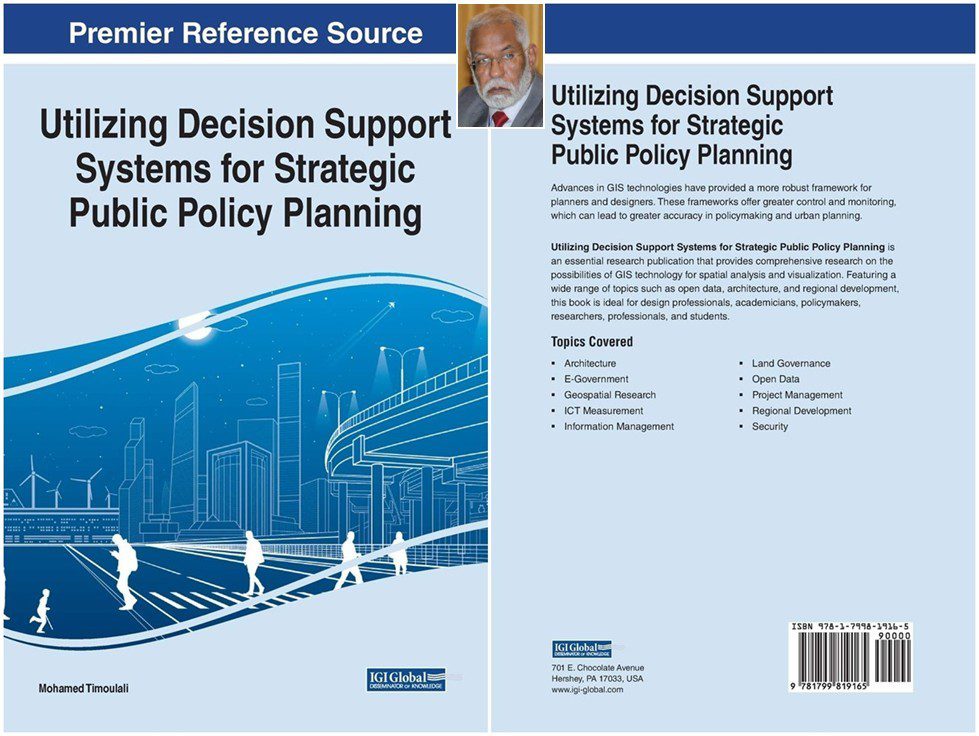
Visite au mémorial du génocide à Kigali le 3 septembre 2004
La visite de sa majesté le roi Mohammed VI en Afrique de l’Est , entamée par le Rwanda se situe dans le processus engagé par notre pays de reprendre sa place légitime au sein de l’ Union Africaine, et mettre ainsi fin à la politique de la chaise vide, qui ne peut être que contre productive , et contre l’intérêt national dans le contexte actuel.
Ma première visite au Rwanda étant en poste au siège de la CEA à Addis Abeba, fut en septembre 2004 à l’occasion du forum du haut niveau du Common Market for Eastern and Southern Africa (COMESA) sur la politique des TIC, la CEA à l’époque apportant un soutient aussi bien à la COMESA sur la politique Régionale des TIC, ainsi qu’au Rwanda pour son Plan national des TIC ( National Information and Communication : NICI).
Le travail accompli par le Rwanda dans ce domaine et dans la bonne gouvernance en général est remarquable , comme en témoigne divers rapports et classements internationaux.
Ma contribution ci-dessous, du 17 juin 2016 à la plateforme de Gestion du Savoir de la CEA, Solution Exchange AFRICAN STATISTICAL COMMUNITY, sur l’implémentation de la révolution des données en Afrique , en fournit une illustration.
—————-
Rwanda is among the African countries making a tangible effort in this area as highlighted by a recent article with the title: Rwanda takes the next step towards a data-driven future.
http://www.newtimes.co.rw/section/article/2016-06-14/200760/
The reason behind this success is the national vision to transform towards achieving a predominantly information and knowledge-based economy through:
– A firm political will at the highest level
– A Participatory Strategic Planning process with tangibles outputs and measurable impact
– Sustainable funding mechanisms and efficient Monitoring and Evaluation
– Reengineered Institutional and Legal Frameworks
– Building Capacity Programs
– Holistic approach on using ICTs for Development
The availability of the following Plans and Strategies is a testimony of this:
– National Strategy for the Development of Statistics NSDS 2009-2014
http://www.paris21.org/sites/default/files/RWANDA-NSDS2009-14-final.pdf
– NISR Organizational Development Strategy
http://www.statistics.gov.rw/publication/nisr-organizational-development-strategy
– SMART Rwanda Master Plan 2015 ~ 2020
http://www.myict.gov.rw/fileadmin/Documents/Strategy/SMART_Rwanda_Master_Plan_v2.1.pdf
The SMART Rwanda Master Plan 2015-2020 objectives build on the past National Information and Communication (NICI) Plans. It underpins the current government transformation agenda.
Rwanda was among the first African countries who benefited from ECA support on formulating NICI plans since 1998.
http://www.uneca.org/sites/default/files/PublicationFiles/nici-book.pdf
Rwanda is also making an effort to build the National Spatial Data Infrastructure (NSDI), integrating statistics and Geospatial Data.
https://prezi.com/0m8-hzwb1n7j/national-spatial-data-infrastructure-nsdi/
As a result, Rwanda represented by the National Institute of Statistics of Rwanda (NISR) was awarded during the Geospatial World Forum on May 8, 2014 in Geneva Switzerland , the Geospatial World Excellence Award 2014’ for Policy and Programs in regards to the 4th Population and Housing Census of Rwanda (RPHC4), conducted in August 2012.
‘http://www.statistics.gov.rw/about-us/news/rwanda-awarded-2014-geospatial-world-excellence-award





